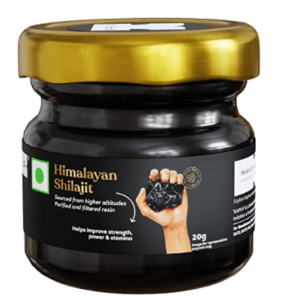With numerous benefits of Moringa, there also comes a question about its side effects. Lets answer it in this article.

WHAT IS MORINGA OR THE MIRACLE TREE ?
Moringa is a plant that grows in India and other parts of the world like Africa and South America. As a whole, it is called Moringa oleifera. It is also known as the drumstick tree and the miracle tree. This plant is commonly farmed around the world because it can tolerate both severe drought and moderate winter.
This plant’s leaves, petals, seeds, and roots have been used in folk medicine for centuries. It works as a potential antioxidant, anticancer, anti-inflammatory, anti-diabetic and antimicrobial agent.
Every portion of the tree is suitable for nutritional or economic applications due to its high nutritious properties. For instance, its leaves are rich in minerals and vitamins. It provides 7 times as much vitamin C as oranges. To add, 15 times as much potassium as bananas. It also contains calcium, protein, iron, and amino acids. All of these aid in the healing and muscle-building processes. It’s also high in antioxidants.
WHAT IS MORINGA USED FOR?
Moringa has been utilized for ages as a medicinal plant with numerous health advantages. It is used for the following purposes –
- To reduce Inflammation – Moringa is known to have an anti-inflammatory effect. Many research study and reports suggest that because of the presence of isothiocyanates and polyphenol, moringa has anti-inflammatory qualities as well as direct and indirect antioxidant activity.
- To nourish skin and hair – Moringa seed oil protects hair from free radicals. It also keeps it clean and healthy. It is effective in treating skin infections and sores. Additionally, it also includes protein. It helps to protect skin cells from oxidative stress. It also has nourishing and detoxifying properties that benefit the skin and hair.
- To maintain blood pressure – Moringa contains the chemicals isothiocyanate and niaziminin. These aid to prevent artery thickening. The thickening can raise blood pressure. Thus, with its properties, it can help maintain blood pressure.
- To manage cholesterol – High cholesterol levels link to a higher risk of heart disease. Many plant foods, fortunately, can effectively lower cholesterol. Moringa oleifera shows identical cholesterol-lowering benefits in both animal and human tests.
- To improve eye health – Because of its strong antioxidant content, Moringa has the ability to improve eyesight. It reduces retinal artery dilation. Additionally, it decreases capillary membrane thickening. It also inhibits retinal malfunction.
IS IT A POTENTIAL TREATMENT FOR DISEASES ?
The answer is Yes. Moringa is utilised for treatment of certain diseases. Certain studies have been conducted in this regard. Yet, research to back the results is still required. Some of the diseases which it may cure are –
- Cancer – Leaf extracts reduced the growth of pancreatic cancer cells in lab experiments and improved the effectiveness of chemotherapy. Moringa leaves, bark, and roots show anti-cancer properties, which could lead to the development of novel medications. Furthermore, it contains the chemical niazimicin, which inhibits the growth of cancer cells.
- Diabetes – Several initial studies suggest that Moringa’s insulin-like proteins may help decrease blood sugar levels. Plant compounds present in the leaves may aid in the body’s sugar processing. It may influence how insulin is released. It helps to reduce the amount of glucose in the blood. In fact, it also decreases sugar and protein in the urine. This improves the hemoglobin levels and overall protein content in those tested.
- Anemia – Moringa may aid in the absorption of iron. This leads to an increase in red blood cell count. The plant extract is regarded to be beneficial in the treatment and prevention of anemia and sickle cell disease.
- Arthritis – Moringa also includes calcium and phosphorus. Both of these are beneficial to bone health. Its extract, may aid in the treatment of illnesses such as arthritis and the healing of damaged bones.

You can find them at : https://foodvez.com/?s=moringa+&post_type=product
DOES IT HAVE ANY SIDE EFFECTS ?
It is the most pertinent to mention that Moringa should be consumed on doctor’s recommendation. There have been few documented side effects and risks :
- It is not suggested for pregnant women since it may have anti-fertility properties. This is because chemicals in its bark may cause the contraction in the uterus . It may lead to miscarriage.
- Moringa may have a suppressive impact on the conversion of T4 (inactive thyroid hormone) to T3 (active thyroid hormone). As a result, it’s been suggested that Moringa may reduce the effectiveness of the hypothyroidism medicine. This medicine is known as levothyroxine.
- Moringa has been shown in numerous trials to lower blood pressure, particularly blood pressure linked with vasodilation. As of currently, there is no scientific evidence on what effect such a reduction would have on particular diseases or drugs.
- It may have an effect on any medications that are broken down by the liver. Moringa extract may hamper this process, which could result in a variety of adverse effects or difficulties.
- It has been demonstrated to lower blood sugar levels and reduce post-meal glucose surges, making it a potentially beneficial anti-diabetic medication. However, if you are using diabetes medicine, Moringa may cause hypoglycemia (low blood sugar levels). This is because Moringa and diabetes medications both lower blood sugar, and when taken together, they may lower blood sugar too much.
The benefits of Moringa outweigh the side-effects and risks, considering it is consumed after doctor’s recommended method and dosage.


